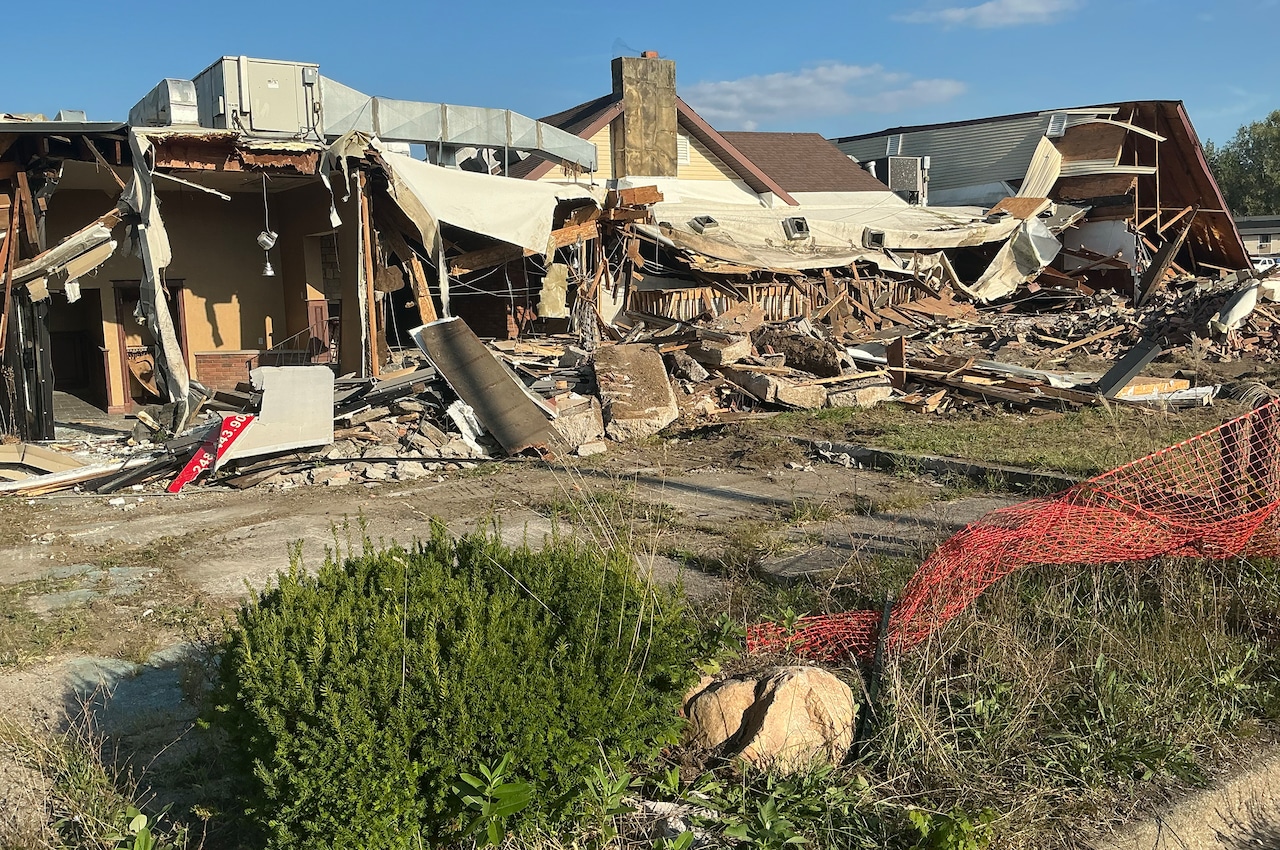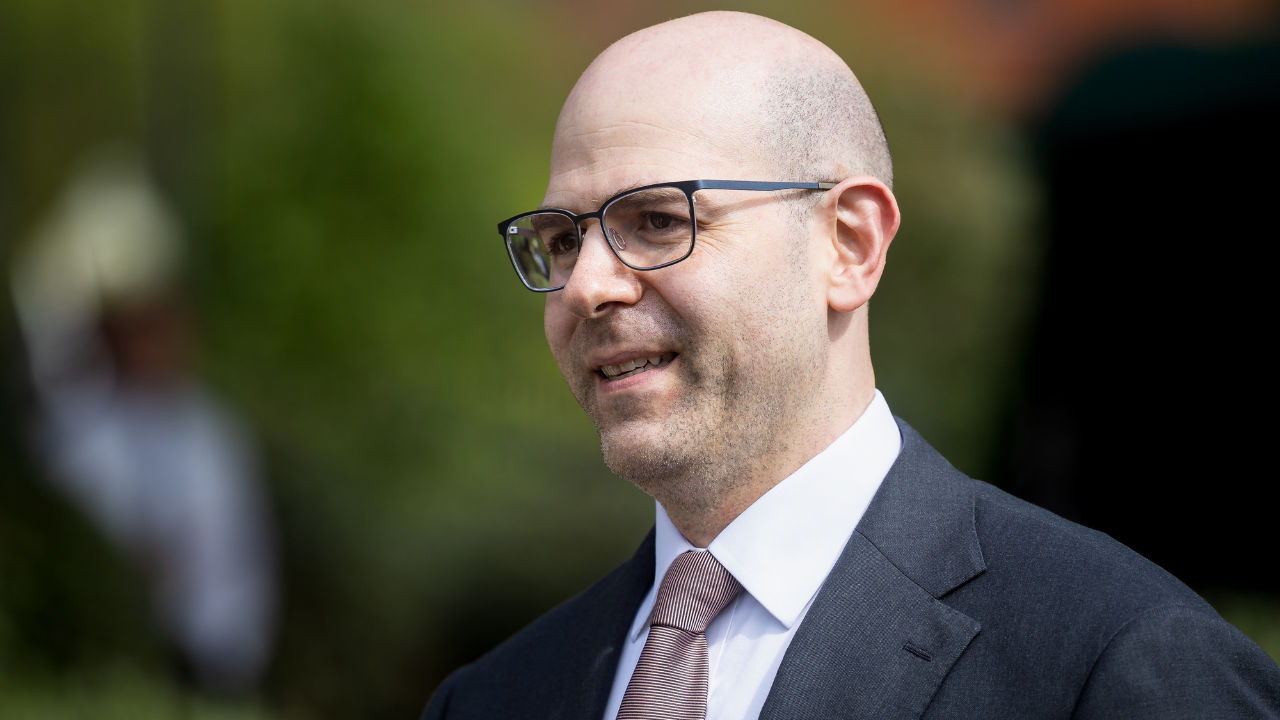By Thursday, 18 September 2025, 12:17 Pm Article: Gordon Campbell
Copyright scoop

Thankfully,
the end is in sight for the government’s dance of the
seven veils over recognising the state of Palestine, and for
Labour’s rampant indecision about the wisdom of endorsing
a capital gains tax. Next week, the government will
finally reveal whether New Zealand is about to become
the 150th country (out of 193 UN member states!) to
recognise Palestine’s right to exist. Sometime before
Christmas, Labour says it is also going to announce its
embrace of a drastically slimmed down version of a capital
In both cases, the sense of anticlimax
will be overwhelming, and that’s probably been by design.
If you bore people enough beforehand, chances are they
won’t have the energy to be mad at you afterwards. Over
Palestine, a
headline in Al Jazeera summed things up pretty
well more than a month ago: “Australia to recognise
Palestinian statehood; New Zealand may follow..” You bet.
In fact, even the “It’s a matter of when, not if”
soundbite used by Christopher Luxon and Winston Peters, has
been a line that Australia’s Foreign Minister Penny Wong
she has been using for the past year. On the world
stage, New Zealand does tend these days to be something of
an afterthought.
Why have we waited until next
week’s UN General Assembly plenary meeting to announce our
recognition of Palestine? The delay has looked very much
like an attempt to avoid arousing the ire of Donald Trump,
in the hope that Australia’s more forthright position on
Palestine will be punished by the White House with a further
tariff penalty, thus erasing the 5% tariff advantage that
Australian exports currently enjoy over us in US markets. If
that really has been the plan, it hasn’t worked so
Meanwhile, the pain in Gaza goes on, and on.
Israel’s aerial bombardment has been intensifying, its
ground onslaught is rolling on through the ruins, about 50
people are killed by the IDF every 24 hours, and 650,000
starvation-weakened Gazans have been told to get up and
start walking south once again. Here is a first person
account from a few days ago, issued
by the UN Office for Humanitarian Relief:
our way back into Gaza yesterday, we drove down barely
passable roads, as people crowded around our convoy, visibly
distraught, pleading for this horror to end. A small girl,
walking alongside her father, waved as we passed. Will she
survive this hell? Do world leaders who can stop this war
see her as worthy of peace? Her life is in the hands of
those who choose to act.
Dignity and hope have
been stripped away, with every killing of a loved one, every
strike on a civilian lifeline, every denial of access.
Systems that support life have been systematically
dismantled and destroyed. Parents struggle to shield their
children from violence, from hunger, from fear. Fleeing
families flood the street, clutching their children in their
arms, not knowing where they will go as every option appears
to have been exhausted. The race against time, against
death, against the spread of famine, feels like we as
humanitarians are running through quicksand. Even more so as
humanitarian convoys are too often denied, delayed or
obstructed by the Israeli authorities.
nevertheless:
Yet, even in such hardship, humanity
shines. Palestinian doctors, nurses and paramedics working
around the clock, often without pay, medicine or
electricity. Aid workers, from UN agencies, the Red
Crescent, local and international NGOs, delivering food,
medicine and clean water under fire. Ordinary people sharing
the little they have with strangers. In every act of care
– a refusal to let cruelty define the future. Proof that
even in the darkest times, the human spirit
This puts in perspective our delay in
recognising Palestine, and how little will be achieved by
that announcement alone.
The $70 Million
Make no mistake, the incredible shrinking
value of our currency has been the main reason why
relatively few big name concert tours have been coming to
New Zealand. For some time, our dollar has been struggling
to breach the 60 cents American barrier. That’s pure
poison, in an international concert business that’s
denominated in US dollars.
We have the venues.
Auckland and Dunedin both have sizeable stadiums (the
Forsythe Barr stadium can host 35,000 concert goers) and
Christchurch has a large stadium about to come on stream.
Our currency remains the real problem. You can drive up
ticket prices only so far, in order to bridge that yawning
gap in the exchange rate.
While the cost structure of
each big concert varies, some of the basics remain fairly
constant. The artist gets a guaranteed return from the
promoter plus a ratio (80/20, or even 90/10) of the returns
from the tickets sold. The promoter may also meet travel
costs (often a ratio of say, a Japan/Australia/NZ leg) the
accommodation, transport, contract riders and per diems, and
other incidentals.
The promoter will also have a cost
sharing arrangement with the venue over matters like venue
hire and security, offset a little in some cases by a
proportion of the onsite merchandise sales. Since the venue
can often make money on food and alcohol, any potential
venue hire /clean-up costs can be discounted or waived
entirely, in recognition of the promoter’s role in
bringing in the punters.
Putting the rough details to
one side, the artists $USD guarantee and their ratio of the
ticket price returns tends to be the deal makers/deal
breakers. If the taxpayer is going to step in and help out
in times when the currency is low, there should be a sunset
clause such that the government subsidy gets withdrawn once
the Kiwi dollar hits 65 cents against the greenback –
because 66 US cents is where the Aussie dollar is sitting
right now, and they’re still managing to attract big
Moreover…if the punters -as-taxpayers are to
be subsidising these shows, is there going to be any relief
on ticket prices? To date, there has been no hint of a quid
pro quo mechanism on ticket prices. It is also unclear what
the eligibility criteria will be for the New Zealand cities
who will be competing for these funds. Will the money be
allocated on a “first come first served” basis until the
fund is depleted? In all likelihood, Auckland – always a
political priority in any election year – will get the
lion’s share of the funds, and the ‘feel good’
benefits of the concert activity.
All this underlines
a point made in a previous Werewolf column. Events
reliant on disposable income do not create wealth. They
merely shift wealth horizontally across the economy such
that money being spent in hotels, bars, and restaurants in
central Auckland will be money that’s not being spent in
hotels, bars, and restaurants elsewhere in Auckland, or in
Hamilton, Tauranga and other points south. The same brutal
logic applies with convention centres. They don’t add to
the nation’s wealth, they merely re-distribute
Meaning: there has to be more transparency about
how this money is to be allocated, what existing shortfalls
in promotion budgets it will meet, and for how long the
subsidy will exist – assuming of course that this isn’t
just a one-off Auckland slush fund, available only in
election year.
Christchurch for instance, might be
hoping/planning on getting X number of big concerts per
annum to defray the sizeable running costs and debt burden
that the Te Kaha stadium has imposed on the city. If so, it
may come as a nasty surprise if the competition for staging
big shows isn’t a level playing field. Unwittingly,
taxpayers/ratepayers nationwide may be being used to enhance
Auckland’s appeal as the only feasible option for big name
concert acts.
Footnote: Is this $70
million going to be a handout, or will it operate as a
rebate, to meet costs assessed as valid by MBIE? If there
are no compliance criteria, how can we know whether those
costs aren’t
being dialled up to eleven? If the government aims to go
down this road, our film business experience in
administering the Large Budget Production Grant Scheme could
be helpful in detecting what is, and isn’t, a valid
concert production cost.
For example: on international
travel, will the New Zealand leg impose added costs, or does
Trans-Tasman travel get treated as a freebie within a Los
Angeles/Tokyo/Sydney/Auckland package deal – and how would
we ever know? It would be so easy for some promoters to
offload an inordinate share of the costs onto the New
Zealand tab, in the sure and certain knowledge that our
government will be mug enough to pay it, no questions
Cultural tourism, via music
past decade, Lisbon has come to rival Barcelona as a magnet
for global tourism. Reportedly Portugal is now
also the number one re-re-location choice for Americans
seeking to flee their country. Unsurprisingly though,
Portugal has yet to find an international crossover form of
the music – fado – most closely associated with the
country. In stark contrast next door in Spain, Rosalia has built
on her foundation in “new flamenco” to become a
global superstar, all the way to
Shibuya crossing and back again.
No-one like
Rosalia has yet emerged from Portugal. (Maybe fado’s
introspective songs about feckless men and heartbroken women
can never be made to work on the dancefloor.) In the
meantime, fado’s greatest exponent continues to be Amalia
Rodrigues (1920-1999). Her signature song “Barco Negro”
has an interesting back story, in that the original
Brazilian lyrics reportedly touched on social relationships
under slavery, and made references to Yemenya, a Yoruba
goddess of fertility.
The Salazar dictatorship in
Portugal banned that version, so the lyrics to “Barco
Negro” were rewritten in the version recorded in 1954 by
Rodrigues that we know today. The song virtually created the
template for fado’s songs of love betrayed, in this case
by a wandering sailor. Here, by courtesy of Google
Translate, is an English translation of this timeless
In the morning, how scared I was that you’d
find me ugly! I woke up trembling, lying on the sand, but
soon your eyes said no, and the sun penetrated my heart.
Then I saw, on a rock, a cross, and
your Black Boat danced in the light. I saw your arm waving,
between the already unfurled sails. The old women on the
beach say you’re not coming back:
crazy! They’re crazy!
I know, my love, that you
never left, because everything around me tells me you’re
always with me. [Repeat]
In the wind that
throws sand against the windows; in the singing water, in
the dying fire; in the warmth of the bed, in the empty
benches; inside my chest, you’re always with
© Scoop Media



